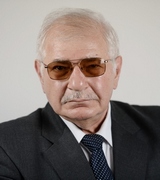 06.10.2014
06.10.2014HUMAN RIGHTS ABUSES IN AZERBAIJAN TOO BLATANT TO COVER UP
The United States’ concerns over the deteriorating human rights situation in Azerbaijan is linked to the new wave of abuses by that country’s ruling regime, says an Armenian political analyst.
“The situation has become gruesome to such a dgree that it has caused not only different US politicians but also President Barack Obama to make calls for blacklisting countries like Azerbaijan as an autocratic country,” Hrant Melik-Shahnazaryan told Tert.am, commenting on the recent statements by the United States and the Council of Europe’s Parliamentary Assembly (PACE).
The expert said he finds that the situation is unacceptable for the United States, especially in light of the current geopolitical tensions with Russia.
“With its current policies and autocratic regime, Azerbaijan cannot now be a reliable country for the US. So the US seeks to maintain the country within the sphere of its influence,” he noted.
Commenting on a recent statement voiced by a PACE official, Melik-Shahnazaryan said he thinks that Europe’s tough stance too, is motivated by the same reasons. “The situation in Azerbaijan has exacerbated to such a degree that it can no longer slip anyone’s eye. If a country possess natural resources, it doesn’t imply that the western authorities should turn a blind eye to the problems there. The societies in western countries too, urge their authorities to be more demanding,” he added.
The analyst said he finds that it is quite natural for a superpower to seek a higher degree of influence on a neighboring state. “We see that the Azerbaijani authorities avoid any type of integration processes today, whether it be with the European or the Eurasian Union. So they are trying to independently manage their natural reserves,” he added.
He ruled out the possibility of a close Russian-Azerbaijani alliance, citing Turkey’s desire to increase its influence on the South Caucasus as a major impediment to that.
“It is with big reservations that we can call the Russian-Azerbaijani relations a partnership; they are, as a matter of fact, rivaling countries in the region. It isn’t somewhat visible now why Azerbaijan should seek closer ties with Russia and thus become another rod post for the country in the region,” he added.
Commenting on the West’s reaction to the human rights situation in Azerbaijan, the political analyst Gagik Harutyunyan said he believes that the international community is thus seeking a kind of information pressure against the country.
“We see at the same time that whenever superpowers wish to give hints to a country, they adopt sanctions and exercise serious pressures. I am a little skeptical as to those statements’ impact on Azerbaijan as that country does not particularly seem to pay a big attention to statements of the kind,” he noted.
Harutyunyan said he finds that international organizations seek in that way to demonstrate their commitment to democracy and other values.
“If there are any steps – not statements – targeted at Azerbaijan’s oil energy sector, I will consider that a more or less serious approach. But no one now seems to be wishing to do that,” he said, ruling out the possibility of a specific action.
http://www.tert.am/en/news/2014/10/06/qaxaqagetner/?sw/?swReturn
Another materials of author
- HYBRID CHALLENGES TO INTEGRATION PROCESSES 2[13.02.2020]
- HYBRID CHALLENGES TO INTEGRATION PROCESSES 1[13.02.2020]
- CRITICAL INFRASTRUCTURES AND IDEOLOGY[25.01.2018]
- SCIENTIFIC AND TECHNOLOGICAL LANDSCAPE OF THE MULTIPOLAR WORLD[23.01.2018]
- “COLOR REVOLUTIONS”[16.01.2017]
- INFORMATION WARFARE OF THE NEW FORMATION[26.12.2016]
- THE GROWTH OF EXTREMISM AND THE FACTOR OF “INTELLECTUAL PARITY”[22.09.2015]
- THE GROWTH OF EXTREMISM AND THE FACTOR OF “INTELLECTUAL PARITY”[31.08.2015]
- ARMENIAN STUDIES IN THE SYSTEM OF NATIONAL SECURITY[07.05.2015]
- EEU AND ARMENIA[15.12.2014]


